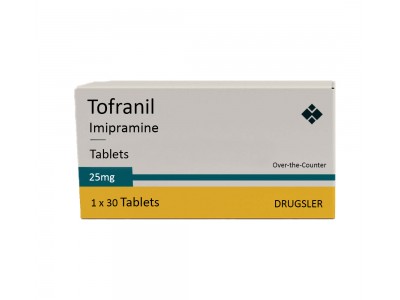Tofranil (imipramine) is primarily used to treat depression. It belongs to the class of medications known as tricyclic antidepressants (TCAs), which work by affecting the levels of neurotransmitters in the brain, particularly serotonin and norepinephrine. By altering these neurotransmitters' levels, Tofranil helps alleviate symptoms of depression such as low mood, loss of interest in activities, changes in appetite or sleep patterns, feelings of guilt or worthlessness, and thoughts of suicide.
In addition to depression, Tofranil may also be prescribed for other conditions including:
- Bedwetting (nocturnal enuresis) in children aged 6 years and older, particularly when other treatments have not been effective. Tofranil can help reduce nighttime bedwetting episodes.
- Panic disorder, where it can help alleviate symptoms such as panic attacks, anxiety, and avoidance behaviors.
While Tofranil can be effective for these conditions, it is generally not considered a first-line treatment for depression or panic disorder due to its potential for side effects compared to newer antidepressants like SSRIs (selective serotonin reuptake inhibitors) and SNRIs (serotonin-norepinephrine reuptake inhibitors). These newer medications typically have a better tolerated side effect profile and are often preferred as initial treatments.
The decision to prescribe Tofranil or any other medication should be made by a healthcare provider based on a thorough evaluation of the individual's medical history, symptoms, and response to previous treatments. It's important for individuals taking Tofranil to be monitored closely for both therapeutic effectiveness and potential side effects, with adjustments to dosage or treatment plan as needed to achieve optimal outcomes.

